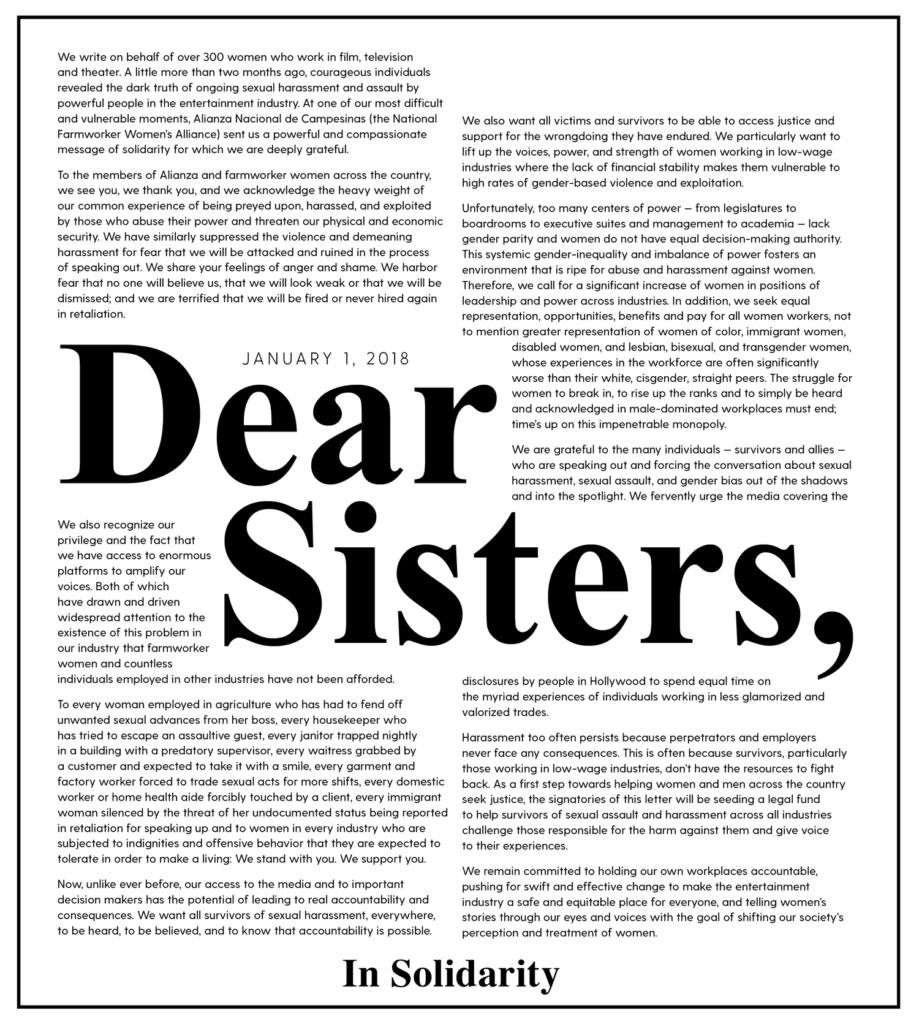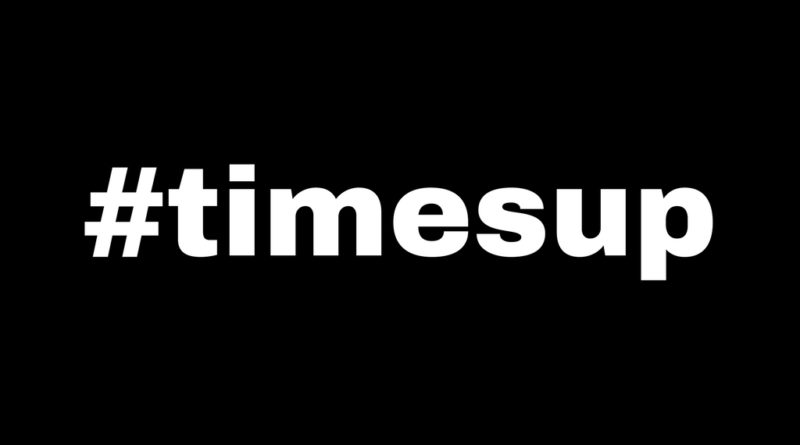#TimesUp Movement Makes Debut at 75th Annual Golden Globes
The red carpet for the 75th Annual Golden Globes looked a lot different this year. Nominees and presenters chose to make a statement by attending in all or almost all black attire in support of #TimesUp, which supports the #MeToo revolution that speaks out about sexual misconduct.
The red carpet is usually known for being a place where the stars of film and television make bold fashion choices, especially compared to the more sophisticated styles worn at the Oscars. The bright colors, sequins, patterns and accessories of the stars’ wardrobes are fitting for the tone of this fun evening—a giant party, complete with a bar, to kick of Awards Season.
The blackout on the red carpet was an effort to bring awareness to Time’s Up Now Legal Defense Fund, championed by “The New York Times,” that supports both women and men who have spoken out against harassment, discrimination and sexual assault. Not just for the world of entertainment, #TimesUp fights for those who have suffered sexual harassment across all industries.

The Hollywood Foreign Press Association (HFPA), who hand out the Golden Globes, embraced this movement with open arms, although HFPA president Meher Tatna wore red. The hashtags #WhyWeWearBlack or #WhyIWearBlack were used to create a social media presence where attendees could connect with viewers at home in solidarity as they all wore black together.
Actress Salma Hayek, one of the many who shared personal experiences through #MeToo, explained best why all participant were wearing black: “I’m wearing black today—not out of mourning but out of an awakening #TimesUp.”
Along with wearing black, many attendees also wore pins emblazoned with the name of the fund.
Organized by former Golden Globe Winner Michelle Williams, many actresses brought female activists as their dates to the show. In addition, they shared their air time in red carpet interviews with them. This was an extension of a movement former Golden Globe Winner Reese Witherspoon started a few years back called #AskHerMore, which encouraged hosts to ask women on the red carpet questions beyond the infamous “who are you wearing?” By bringing activist to their interviews, they challenged and changed the conversation further.
Much of the night respectfully touched on these themes after the red carpet. Host Seth Meyers cleverly and unapologetically made it the focus of his opening monologue—and rightfully so, with such award show heavyweights as Harvey Weinstein and Kevin Spacy absent due to recent sexual misconduct allegations. Meyers’ jokes were sharp and well executed.
Many winners also used their limited time in their acceptance speeches to support the cause, including Oprah Winfrey, Elisabeth Moss, Rachel Brosnahan, Frances McDormand and “Big Little Lies” stars Nicole Kidman, Laura Dern and Reese Witherspoon.
With several more award shows on the horizon, what does the #TimesUp movement and voluntary black dress code mean for the reason of Awards Season? Many feel that politics have no place at a show celebrating creativity. However, others believe that winners have the right to use their speech and wardrobe as they please. Will other awards create their own tributes/movement, follow the same protocol as the Golden Globes, or not address these issues at all? Many anticipate what the Oscars will do to address these issues. Perhaps this movement may even have a presence beyond this year’s awards season.

